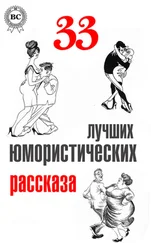“I say, J., old man, are you drunk?”
We told him no, that we were only a student of the drama. His wife then entered in a towering passion. She didn’t ask us if we were drunk. She said:
“How dare you come here in this state!”
We endeavored unsuccessfully to induce her to believe that we were sober, and we explained that our course of conduct was what was always pursued on the stage.
She said she didn’t care what was done on the stage, it wasn’t going to be pursued in her house; and that if her husband’s friends couldn’t behave as gentlemen they had better stop away.
The following morning we received a letter from a firm of solicitors in Lincoln’s Inn with reference, so they put it, to the brutal and unprovoked assault committed by us on the previous afternoon upon the person of their client, Miss Matilda Hemmings. The letter stated that we had punched Miss Hemmings in the side, struck her under the chin, and afterward, seizing her as she was leaving the room, proceeded to commit a gross assault, into the particulars of which it was needless for them to enter at greater length.
It added that if we were prepared to render an ample written apology and to pay 50 pounds compensation, they would advise their client, Miss Matilda Hemmings, to allow the matter to drop; otherwise criminal proceedings would at once be commenced against us.
We took the letter to our own solicitors and explained the circumstances to them. They said it seemed to be a very sad case, but advised us to pay the 50 pounds, and we borrowed the money and did so.
Since then we have lost faith, somehow, in the British drama as a guide to the conduct of life.
It is nice and quiet and it talks prettily.
We have come across real infants now and then in the course of visits to married friends; they have been brought to us from outlying parts of the house and introduced to us for our edification; and we have found them gritty and sticky. Their boots have usually been muddy, and they have wiped them up against our new trousers. And their hair has suggested the idea that they have been standing on their heads in the dust-bin.
And they have talked to us – but not prettily, not at all – rather rude we should call it.
But the stage child is very different. It is clean and tidy. You can touch it anywhere and nothing comes off. Its face glows with soap and water. From the appearance of its hands it is evident that mud-pies and tar are joys unknown to it. As for its hair, there is something uncanny about its smoothness and respectability. Even its boot-laces are done up.
We have never seen anything like the stage child outside a theater excepting one – that was on the pavement in front of a tailor’s shop in Tottenham Court Road. He stood on a bit of round wood, and it was fifteen and nine, his style [200].
We thought in our ignorance prior to this that there could not be anything in the world like the stage child, but you see we were mistaken.
The stage child is affectionate to its parents and its nurse and is respectful in its demeanor toward those whom Providence has placed in authority over it; and so far it is certainly much to be preferred to the real article. It speaks of its male and female progenitors as “dear, dear papa” and “dear, dear mamma,” and it refers to its nurse as “darling nursey.” We are connected with a youthful child ourselves – a real one – a nephew. He alludes to his father (when his father is not present) as “the old man,” and always calls the nurse “old nut-crackers.” Why cannot they make real children who say “dear, dear mamma” and “dear, dear papa?”
The stage child is much superior to the live infant in every way. The stage child does not go rampaging about a house and screeching and yelling till nobody knows whether they are on their heads or their heels.
A stage child does not get up at five o’clock in the morning to practice playing on a penny whistle. A stage child never wants a bicycle and drives you mad about it. A stage child does not ask twenty complicated questions a minute about things that you don’t understand, and then wind up by asking why you don’t seem to know anything, and why wouldn’t anybody teach you anything when you were a little boy.
The stage child does not wear a hole in the seat of its knickerbockers and have to have a patch let in. The stage child comes downstairs on its feet.
The stage child never brings home six other children to play at horses in the front garden, and then wants to know if they can all come in to tea. The stage child never has the wooping-cough [201], and the measles, and every other disease that it can lay its hands on, and be laid up with them one after the other and turn the house upside down.
The stage child’s department in the scheme of life is to harrow up its mother’s feelings by ill-timed and uncalled-for questions about its father. It always wants to know, before a roomful of people, where “dear papa” is, and why he has left dear mamma; when, as all the guests know, the poor man is doing his two years’ hard [202]or waiting to be hanged. It makes everybody so uncomfortable.
It is always harrowing up somebody – the stage child; it really ought not to be left about as it is. When it has done upsetting its mother it fishes out some broken-hearted maid, who has just been cruelly severed forever from her lover, and asks her in a high falsetto voice why she doesn’t get married, and prattles to her about love, and domestic bliss, and young men, and any other subject it can think of particularly calculated to lacerate the poor girl’s heart until her brain nearly gives way.
After that it runs amuck up and down the whole play and makes everybody sit up all round. It asks eminently respectable old maids if they wouldn’t like to have a baby; and it wants to know why bald-headed old men have left off wearing hair, and why other old gentlemen have red noses and if they were always that color.
In some plays it so happens that the less said about the origin and source of the stage child the better; and in such cases nothing will appear so important to that contrary brat as to know, in the middle of an evening-party, who its father was!
Everybody loves the stage child. They catch it up in their bosoms every other minute and weep over it. They take it in turns to do this.
Nobody – on the stage, we mean – ever has enough of the stage child. Nobody ever tells the stage child to “shut up” or to “get out of this.” Nobody ever clumps the stage child over the head.
When the real child goes to the theater it must notice these things and wish it were a stage child.
The stage child is much admired by the audience. Its pathos makes them weep; its tragedy thrills them; its declamation – as for instance when it takes the center of the stage and says it will kill the wicked man, and the police, and everybody who hurts its mar – stirs them like a trumpet note; and its light comedy is generally held to be the most truly humorous thing in the whole range of dramatic art.
But there are some people so strangely constituted that they do not appreciate the stage child; they do not comprehend its uses; they do not understand its beauties. We should not be angry with them. We should the rather pity them.
We ourselves had a friend once who suffered from this misfortune. He was a married man, and Providence had been very gracious, very good to him: he had been blessed with eleven children, and they were all growing up well and strong.
The “baby” was eleven weeks old, and then came the twins, who were getting on for fifteen months and were cutting their double teeth nicely. The youngest girl was three; there were five boys aged seven, eight, nine, ten, and twelve respectively – good enough lads, but – well, there, boys will be boys, you know; we were just the same ourselves when we were young. The two eldest were both very pleasant girls, as their mother said; the only pity was that they would quarrel so with each other.
Читать дальше
Конец ознакомительного отрывка
Купить книгу
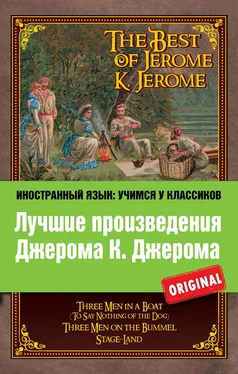
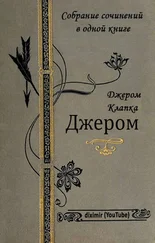





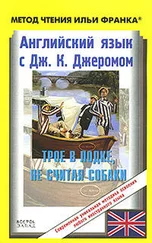
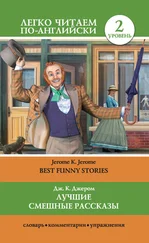
![Джером Джером - Избранные произведения в одном томе [Компиляция, сетевое издание]](/books/426293/dzherom-dzherom-izbrannye-proizvedeniya-v-odnom-tome-thumb.webp)


